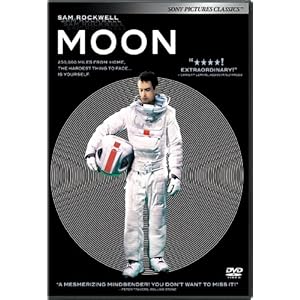 Zero History follows in the footsteps of William Gibson's previous 2 books, "Pattern Recognition" and Spook Country", with the atmosphere in the novel remaining much the same as before.
Zero History follows in the footsteps of William Gibson's previous 2 books, "Pattern Recognition" and Spook Country", with the atmosphere in the novel remaining much the same as before.
Bruce Sterling provided a cool idea ("the ugliest t-shirt in the world") for the finale which brought together the full gamut of characters and macguffins in a satisfying way.
Boing Boing has a good micro-review of the book and Wired has an interview with Gibson about it.
William Gibson's latest novel, Zero History, is his best yet, a triumph of science fiction as social criticism and adventure. Continuing on from 2007's Spook Country, Zero History features a reformed, dried out version of Milgrim, the junkie anti-hero from Spook Country. He's been rehabilitated at the expense of Hubertus Bigend, the shadowy power-broker whom we first met in Pattern Recognition. Bigend has got Milgrim hunting for the designer behind a mysterious line of fetish-denim, in the hopes of remaking it as the basis for a lucrative US military contract; this being Bigend's idea of novelty-seeking good times.
Joining Milgrim is Hollis Henry, the former pop star from Spook Country, still reluctantly in Bigend's employ, but even more conflicted, and missing her ex-boyfriend, a thrill-seeking nutjob whose idea of a good time in jumping off tall buildings in a glidersuit. Milgrim -- and later, Hollis -- track the secret denim from South Carolina to London to Paris and back to London again, and very quickly find themselves embroiled in an intrigue involving US spooks, experimental UAVs, rogue infosec specialists, and a palace coup at Blue Ant, Bigend's legendary design and branding firm.
What makes Zero History into Gibson's best so far is how absolutely perfectly he captures the futuristic nature of the present day. Milgrim -- a junkie dried out after a ten year fugue of living rough and stealing to buy pills -- is well-suited to this task, emerging as if from a time-machine into the 21st century in full swing, able to narrate its essential strangeness without seeming contrived. But all of Gibson's characters are in the business of understanding how we got to this futuristic present, and on every page, there is a jolt of pleasant dissonance as Gibson does the conjurer's trick of making you look at your surroundings with fresh eyes.
Here is a book that is both contemporary, and futuristic -- and anachronistic, filled as it is with characters who long for simpler times, who fetishize antique computers and vintage memorabilia. It's a book that doesn't so much feel written as designed, cunningly filled with trompe d'esprit effects that fool your brain into staring at your own life from the objective distance of a Martian.
